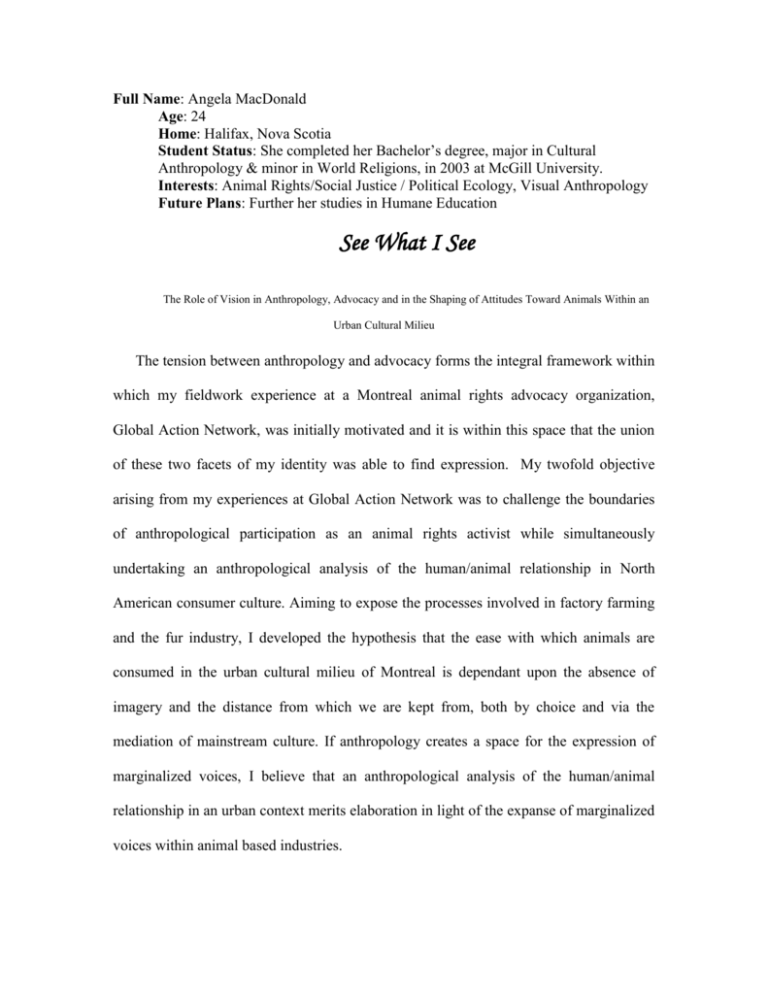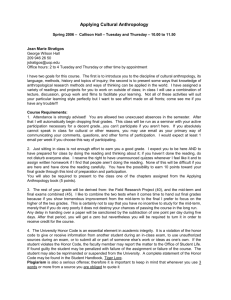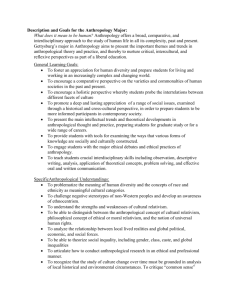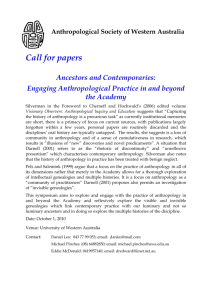Full Name: Angela MacDonald
advertisement

Full Name: Angela MacDonald Age: 24 Home: Halifax, Nova Scotia Student Status: She completed her Bachelor’s degree, major in Cultural Anthropology & minor in World Religions, in 2003 at McGill University. Interests: Animal Rights/Social Justice / Political Ecology, Visual Anthropology Future Plans: Further her studies in Humane Education See What I See The Role of Vision in Anthropology, Advocacy and in the Shaping of Attitudes Toward Animals Within an Urban Cultural Milieu The tension between anthropology and advocacy forms the integral framework within which my fieldwork experience at a Montreal animal rights advocacy organization, Global Action Network, was initially motivated and it is within this space that the union of these two facets of my identity was able to find expression. My twofold objective arising from my experiences at Global Action Network was to challenge the boundaries of anthropological participation as an animal rights activist while simultaneously undertaking an anthropological analysis of the human/animal relationship in North American consumer culture. Aiming to expose the processes involved in factory farming and the fur industry, I developed the hypothesis that the ease with which animals are consumed in the urban cultural milieu of Montreal is dependant upon the absence of imagery and the distance from which we are kept from, both by choice and via the mediation of mainstream culture. If anthropology creates a space for the expression of marginalized voices, I believe that an anthropological analysis of the human/animal relationship in an urban context merits elaboration in light of the expanse of marginalized voices within animal based industries. Over the course of my three months fieldwork at Global Action Network, I participated in four protests aimed at drawing attention to the cruel processes involved in factory farming, the seal hunt as well as fur farming and trapping. At each protest, and one in particular targeted at the commercial fur trade and its founder, the Hudson’s Bay Company, I was introduced to the experience of sensing myself as apart from mainstream culture and realized that what I was doing by standing there together with Global Action Network, as an anthropologist and as an activist, was explicitly critiquing the habits and complicit attitudes toward animal suffering by mainstream culture. Holding a laptop displaying video footage of fur farming conditions, while standing in the middle of an extremely crowded sidewalk in downtown Montreal, not a single person stopped to see what the tape was showing or to even acknowledge that I was there at all. My findings suggest that within the urban milieu, we do not want to see graphic images of animal cruelty and so we choose not to see them. Regardless of the prevailing opposition to the reconciliation between the two roles of anthropologist and activist, there are those within the discipline that contend that the two have forever been intrinsically linked. In fact, there are many, myself included, who were initially attracted to anthropology for its nature as a discipline that encourages tolerance of difference and appreciation of cultural diversity, and its emphasis on the need to acknowledge that there exists more than one way of approaching relationships with people and the natural environment. Where anthropology aims at disseminating an understanding of the world as seen through the eyes of others, advocacy seeks to heighten public awareness on issues that have been suppressed and hidden in order for others to see existing manifestations of oppression, exploitation and social injustice. The common thread woven across the two roles is the message emanating from both the anthropologist and the advocate: ‘see what I see.’








